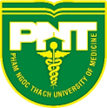In today’s digital age, technology has revolutionized various aspects of our lives, including the way we manage our health. Digital health technologies, such as mobile apps, wearable devices, and online platforms, have become increasingly popular tools for individuals to monitor and improve their well-being. However, the effectiveness of these technologies heavily relies on health literacy – the ability to understand and use health information to make informed decisions about one’s health.
Health literacy plays a crucial role in the successful adoption and utilization of digital health technologies. It encompasses not only the ability to read and comprehend health-related information but also the skills to navigate digital platforms, interpret data, and critically evaluate the reliability and accuracy of health information found online.
One of the key advantages of digital health technologies is their ability to provide individuals with easy access to a wealth of health information. However, this abundance of information can be overwhelming, especially for those with limited health literacy skills. Without the necessary knowledge and skills, individuals may struggle to understand complex medical terms, interpret test results, or make sense of the vast amount of health-related data generated by wearable devices.
To address this challenge, it is essential to improve health literacy among individuals, empowering them to effectively use digital health technologies. Health literacy interventions can include educational programs, workshops, and online resources that focus on enhancing individuals’ understanding of health information and their ability to navigate digital platforms. By equipping individuals with the necessary skills, they can confidently engage with digital health technologies and make informed decisions about their health.
Moreover, digital health technologies can also contribute to improving health literacy itself. Many mobile apps and online platforms offer user-friendly interfaces, interactive features, and personalized health information, making it easier for individuals to understand and engage with their health data. For example, fitness tracking apps can provide real-time feedback on physical activity levels, while medication management apps can send reminders and provide information about drug interactions.
However, it is crucial to ensure that digital health technologies are designed with health literacy in mind. User interfaces should be intuitive, language should be clear and concise, and information should be presented in a visually appealing and easily understandable manner. Additionally, it is important to consider the diverse needs and preferences of users, including those with low health literacy levels or limited digital literacy skills.
Healthcare providers also play a significant role in promoting health literacy and supporting the effective use of digital health technologies. They can educate patients about the benefits and limitations of these technologies, guide them in selecting reliable and evidence-based apps or platforms, and provide ongoing support and guidance in interpreting and using health information obtained through digital tools.
In conclusion, health literacy is a critical factor in the successful adoption and utilization of digital health technologies. By improving health literacy skills among individuals and designing user-friendly digital health solutions, we can empower individuals to take control of their health and make informed decisions. Healthcare providers, policymakers, and technology developers must work together to bridge the gap between health literacy and digital health technologies, ensuring that these tools are accessible, usable, and beneficial for all individuals.
